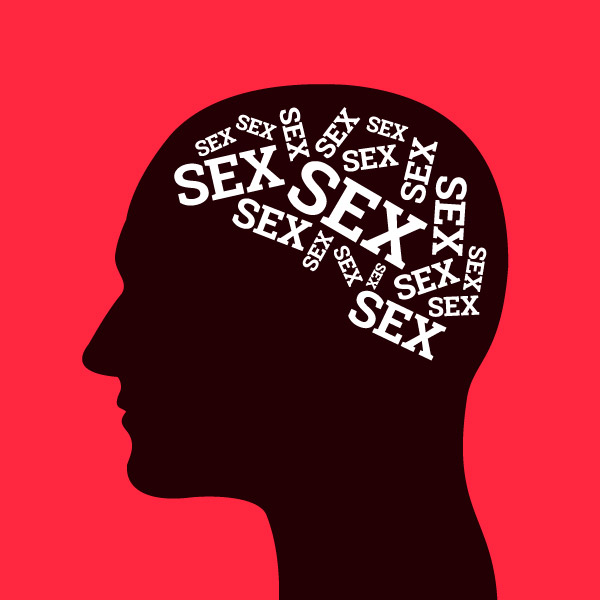Sex Addiction
Sex addiction is characterised by an impulsive drive to satisfy a sexual need or feeling to achieve a “high”. It is a type of behavioural addiction that differs from porn addiction.
If you believe you are affected by the challenges of sex addiction, understanding the signs and symptoms and your options for treatment can help you make healthier, informed decisions. The goal is to support you in making better decisions so that you can enjoy healthy relationships.
Sex Addiction: Does It Exist?
The recognition of sex addiction has come under much scrutiny over the past decade. According to the DSM 5 and the ICD 10, sex addiction is defined as a compulsive need to engage in sexual acts. It is more than just “enjoying sex” but rather a compulsion and dysfunctional need to seek sexual partners, watch pornography, masturbate, and engage in risky sexual activities. It is a dangerous behavioural addiction with far reaching consequences.
Sex addiction negatively affects relationships, but also compromises safety, health, and overall quality of life. It has an impact on both mental and physical well-being.
Individuals afflicted by sex addiction may pursue sexual activity in the middle of a workday, change their behaviour to seek out sexual stimulation, and sacrifice relationships including their loved ones to satisfy an unhealthy drive.

The Signs & Symptoms of Sex Addiction
Sex addiction is not listed as a specific disorder in the DSM 5 making it difficult to establish the criteria for symptoms. As it is recognised as a dysfunction and behavioural addiction, the following signs and symptoms are cited by Psych Guides and serve as a guide to determining whether sex addiction is present:
- Obsessive and overpowering sexual thoughts and fantasies
- Concealing activities and lying about whereabouts
- Becoming preoccupied with sex despite its negative impact on relationships, work & personal life, physical and mental well-being
- Knowingly engaging in risky behaviours to satisfy sexual compulsions
- A lack of control or inhibition.
Sex addiction goes beyond infidelity or an obsession with sex. It involves a sexual preoccupation and sacrificing the pursuit of love and human connections with the act of and the gratification of sex (Everyday Health). A significant sign of sex addiction is the inability to stop or control one’s behaviour, thoughts, and pursuits.
Sex Addiction Hurts Relationships
Sex addiction is immensely damaging to the mental and physical wellness of an individual but also to relationship commitments. The obsessions and the lack of control surrounding sex and sexual activities leads many individuals to disconnect sex from love, relationships, and creating intimate connections. Sex becomes a dependence that must be satisfied rather than a commitment. Individuals with a sexual addiction treat partners as objects and as a means to fulfil a drive and obsession.
Up to 6% of people experience sex addiction (Medical News Today). Whether the pursuit of pornography or seeking out partners, sex addiction prevents individuals from being able to emotionally connect with another on both a mental and a physical level. Some people also suffer from depression and anxiety or the health threats associated with STI’s owing to risk prone sexual behaviours. It breaks down family relationships and is often associated with poor self esteem.

What are the Causes of Sex Addiction?
The reasons that some people develop sex addictions and others not is not clearly understood.
Studies suggest that sex addiction may be linked to abnormal biochemistry in the brain, depression, and the brain’s primitive reward system (PsychCentral).
The more individuals engage in illicit sexual activities, the more the brain associates it with feeling good and satisfied. Despite negative consequences on relationships or work life, individuals will continue to become preoccupied with sex to reward their compulsion.
Research has also suggested that people from dysfunctional families, past trauma such as sexual abuse as a child, and those raised in conditional, unsupportive, or unloving family environments are more likely to develop sex addictions (PsychCentral).
Underlying mental health disorders including obsessive compulsive disorder have also been linked to sex addiction owing to its lack of control and extreme impulsiveness.
Sex Addiction Vs. Porn Addiction
Sex addiction often includes a preoccupation with pornography but is sex addiction and porn addiction one and the same?
Because there are no established criteria for sex addiction in the DSM 5, differentiating sex addiction from porn addiction becomes complicated. As sex addiction includes multiple symptoms and manifestations including an obsession with pornography, porn addiction is considered a subset or a class of sex addiction.
As some individuals pursue their sexual drive by seeking multiple partners or masturbation while others become obsessed with pornography to “achieve their fix” both sex addiction and pornography can be classified as distinct disorders.

Treatment Options for Sex Addiction
If you or someone you know is affected by sex addiction, the following options for treatment can help you take the necessary steps to improve your mental health and protect your physical well-being.
Residential Rehabilitation
As sexual addiction becomes habitual and includes changes in lifestyle and personality, it becomes difficult to refrain from environmental triggers. Residential rehab offers a full-time treatment programme, away from triggers and with access to daily therapy to change thought patterns and behaviours responsible for compulsive and obsessive sexual behaviour.
Private Counselling
Private counselling offers one-on-one sessions with a specialised therapist. Counsellors and individuals will work together to identify the patterns, compulsions, and the behaviours contributing to addiction. Private counselling can include Cognitive Behavioural Therapy (CBT) in which individuals are taught to identify and change maladaptive behaviours.
Support Groups
12 step programmes such as Sex Addicts Anonymous (SAA) encourage individuals to assess the impact of their behaviours on their personal lives and relationships. Strategies for recovery include refraining from risky, compulsive sexual activity. Group meetings are held in which distressing thoughts and behaviours are explored in a supportive and safe environment.
